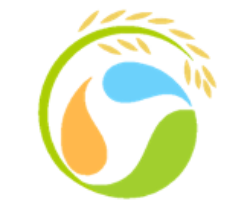Who we are?
The Permaculture Institute Myanmar (PIM) was founded in 2019 by Dr Johanna Garnett a lecturer in Peace Studies and Globalization, alongside her colleagues Than Shwe (a PDC graduate and permaculture trainer) and Myat Tun (Environmental educator) aiming to protect and conserve the environment, promote sustainable living and peace in Myanmar. PIM is a local non-government organization (LNGO) strategically planned to collaborate in national and international level as well.
Why we are?
Myanmar is located in South-east Asia and its population is 52 million (UNDP, 2017)) and 70% of its population live in rural areas with poor living standards. Almost all of the rural population is involved in agriculture for their livelihood.
We strongly believe that alleviating rural poverty and development of Myanmar is directly linked to the improvement of agriculture. Political instability, poor water irrigation system, soil degradation, land desertification, lack of access to market, high farming input cost and lack of access to sustainable modern farming techniques lead the rural farming community into the most vulnerable group in the community. It is very obvious that the agriculture sector contributed approximately 36.8 per cent towards country GDP, but in 2019 it declines about 21 per cent to Myanmar GDP.
The farmers have very merely interest for farming right now. Because, there were no opportunities for them to stabilize their livelihood relying on farming. It leads to mass migration of rural people, illegal moving to neighboring countries such as Thailand and Malaysia for making money, especially young people from rural community are leaving from their original places for making money as factories workers. The rural community still consider that farming is a job for uneducated people and poor people. The parents forced to their children to choose other life careers such as doctor, teacher, engineer and businessman. There is now huge farmer generation gap in the rural community. We need to educate the young people from farming communities for mindset shift, installing love in the farming and proud of being soil defenders and food feeders to the society.
One of our main challenges is that many multi-national agricultural companies are persuading the local small farmers by introducing their high yield seeds, chemical inputs and techniques which are only focusing on how to use their products. These are totally non-sustainable and costly and result in getting small farmers into debt. Most importantly, we urgently need to change our destructive conventional farming practices into more sustainable, regenerative and resilient farming approaches through rural farmer capacity building training, empowering rural community, educating young farmers.
The success and development of agriculture is not only based on how much the profit is make in number: It is depend on producing safe and healthy food, how harmonize to the natural process and no damaging the environment. Myanmar farming community needs to be develop to escape from the debt and become economically sustainable community through out with environmentally and socially sustainable practices.
What We do?
The main objective of PIM is to spread the practice of Permaculture nationwide by empowering youths. Moreover, we are pleased to work with all form of collaboration in sustainable agriculture development, livelihood development and environmental conservation. PIM is not based on religious, race, color and gender. PIM is designed to become learning platform and space with equal opportunity for everyone.
The first step of the PIM is establishing the permaculture farm to demonstrate the permaculture concepts and techniques and to install all of possible applications based on the permaculture ethics and principles. The farm has been initiating since 2020 July.
The second step is to implement farm structure and build necessary buildings enough to accommodate (30) learners and (15) trainers, staffs and volunteers.


The third step of the PIM is to initiative the Permaculture Learning Center and to train young farmers from Rakhine state and different areas of Myanmar to be well-educated soil defenders and make positive impacts on their communities, soil, water and surrounding environment.
The fourth step is to work closely with grassroots communities and soil dependent people for sustaining their livelihood and community food security through Farmer Empowerment and Livelihood development program.
